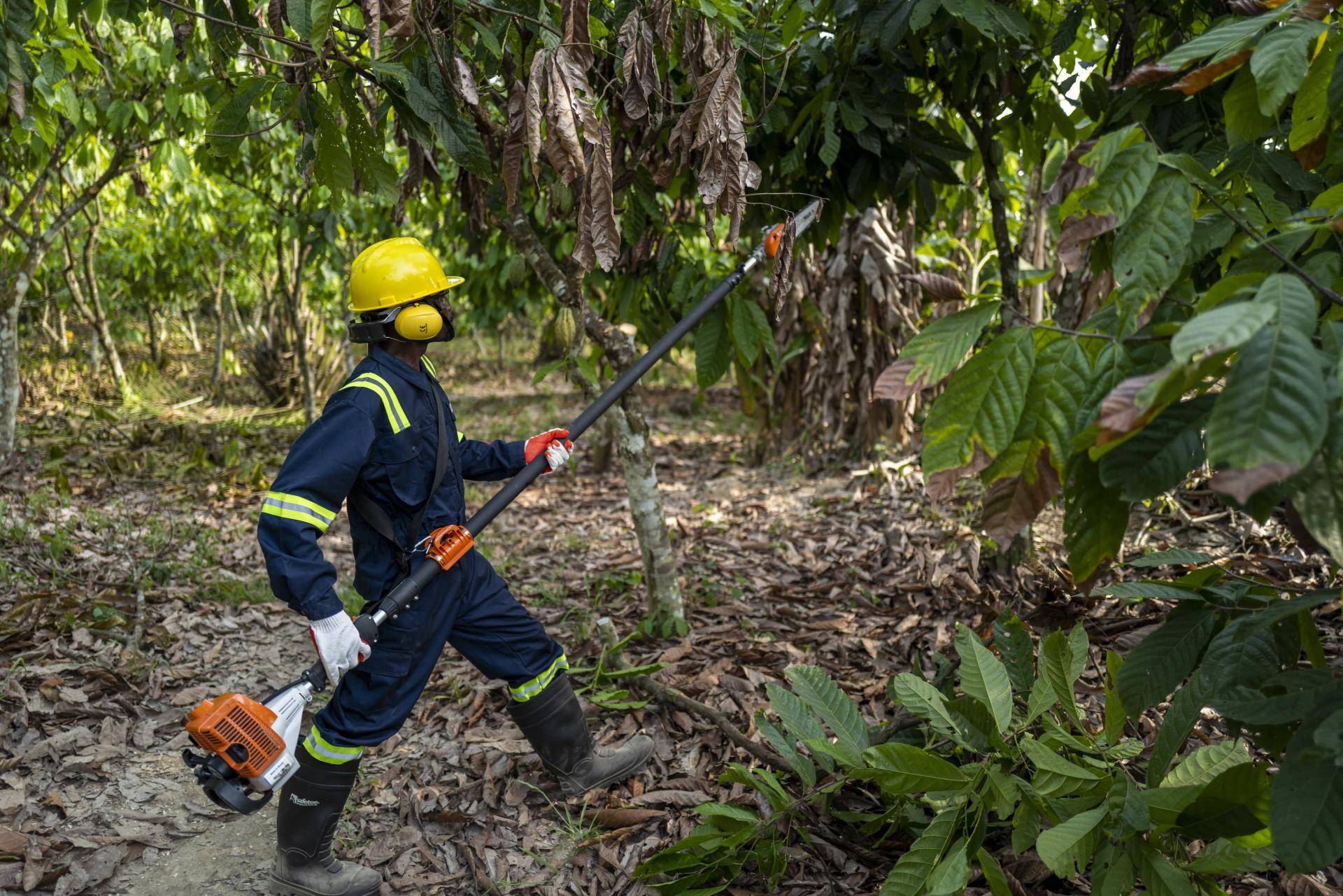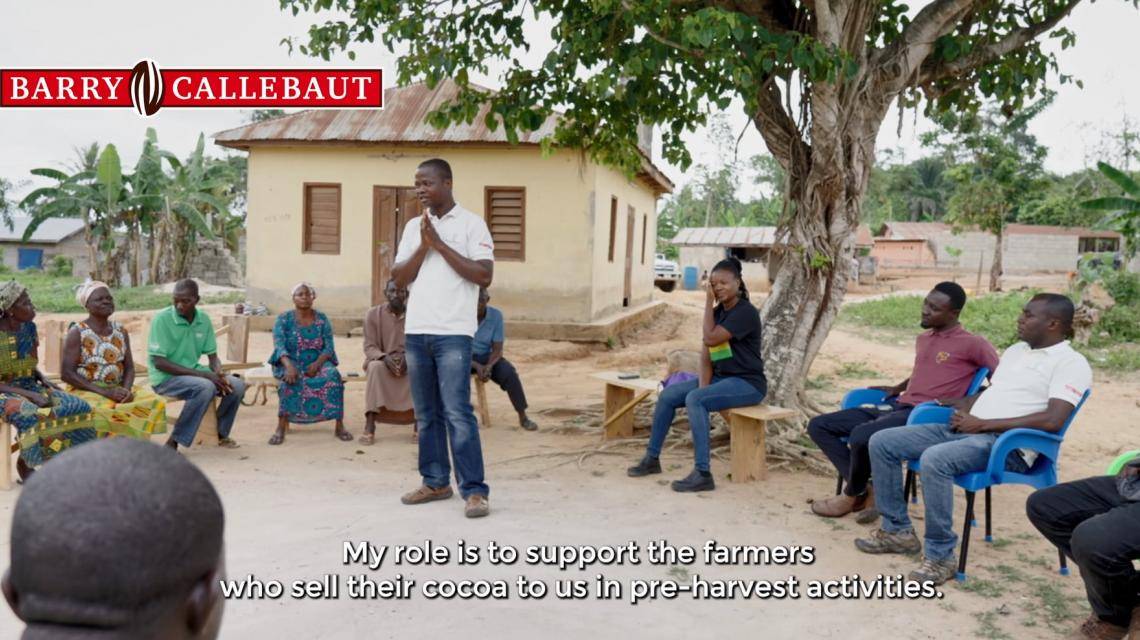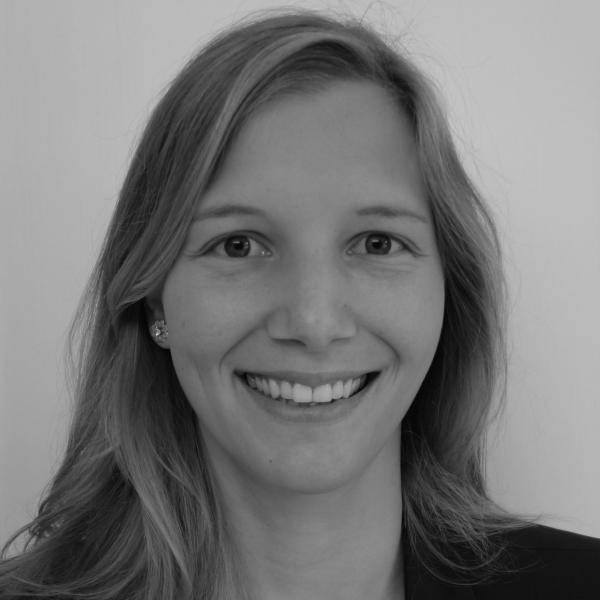Unlocking pre-harvest activities for better cocoa yield

Unlocking pre-harvest activities for better cocoa yield
As part of our Forever Chocolate commitment to lift more than 500,000 cocoa farmers in our supply chain out of poverty by 2025, we are supporting farmers by modernizing agriculture and cultivation methods, increasing yields, diversifying income and professionalizing farming. Established in 2018, our Farm Services Business is focused on supporting farmers with Farm Business Plans (FBPs), which constitute a multi-year model of the potential income a specific farm can generate if managed optimally. Providing farmers with a tailored offering is the key cornerstone of our multi-year FBPs, which present the farmers with a journey out of poverty based on their individual situation and farm profile.

A labor team involved in the process of pruning cocoa trees. Careful pruning helps the trees produce more fruits and increases quality and yield.
The importance of pre-harvest activities
Within our Farm Services business, we have demonstrated that increased investment into pre-harvest labor, particularly for tree pruning, as well as higher investment in the right mix and amount of soil inputs, can improve cocoa yields and lead to increased farmer income. For example, we found that farmers who increased pre-harvest labor to on average 350 hours per hectare thanks to a pilot project with a customer, experienced higher increases in yield in 2020/21. In comparison, farmers who invested on average less than 50 hours per hectare in pre-harvest labor, showed the lowest yield performance.
However, one of the challenges cocoa farmers face is the financial cost of pre-harvest work. Cocoa farmers in West Africa spend on average 70% of their time doing post-harvest activities and only 30% doing pre-harvest activities. Cocoa farming in West Africa is primarily a family-operated business, and the cost of additional labor for pruning as well as soil inputs is often out of reach for farmers. Therefore, this year we have adapted our Farm Business Plans to focus on two key elements: access to inputs such as fertilizers and crop protection products and additional support via external labor.
Most farmers work on the farms themselves and cannot afford to pay anyone to help them. This is a big challenge as the average two or three hectares a farmer has are both small and big. Small to earn a decent living, but also big to work on your own, knowing there are about 1000 cocoa trees per hectare. So the question we are facing is how to drive more labor and more investment into cocoa farms when farmers usually cannot afford to do so.
Providing financial support to cocoa farmers for labor and soil inputs
In the past few months, Barry Callebaut commenced a program to support 10,000 farmers in Côte d’Ivoire and Ghana with external labor and subsidized soil inputs. The program covers the formation of labor teams for each pilot cooperative and involves recruiting and training community members and providing them with the necessary gear. This includes professional pruning equipment and protective wear, motor vehicles and management tools to organize the allocation of resources.
The benefit for labor team members is that they can apply the skills we teach them on their own farm as well. At the same time, the work they do on other farms provides them with additional income to support their family.

Rukayatu Adamu, a beneficiary of Barry Callebaut’s Farm Services program, on her cocoa farm after a visit from the local labor team. Cocoa farming in West Africa is primarily a family-operated business and the cost of additional labor for pruning as well as soil inputs is often out of reach for farmers.
The labor groups focus on the labor-intensive tasks of pruning and weeding. In exchange for the pre-harvest labor support provided, the farmer commits to pay for the necessary soil inputs, subsidized by Barry Callebaut.
A farmer's perspective
To discover how this is working on the ground, let’s have a look at the small farming village Ekawaso, located in the Eastern part of Ghana. There Rukayatu Adamu, a beneficiary of Barry Callebaut’s Farm Services, was recently visited by a labor team.
*Nyonkopa belongs to Barry Callebaut and is among the very few private Licensed Buying Companies in Ghana authorized by the Ghana Cocoa Board (COCOBOD) to buy cocoa directly from farmers.
In the coming crop season, Barry Callebaut aims to scale this new approach deploying large-scale labor teams to reach more farmers in our supply chain.

